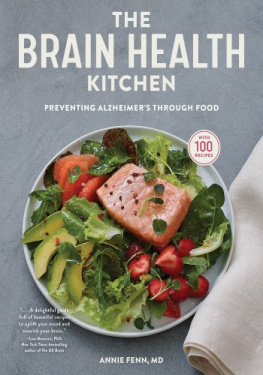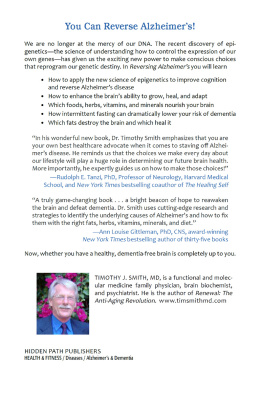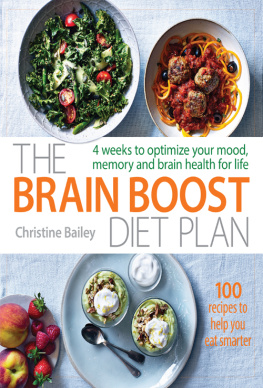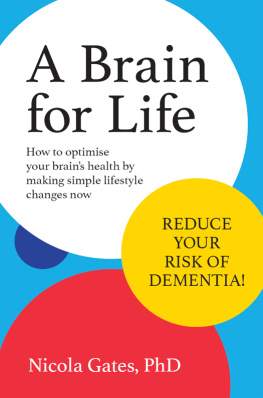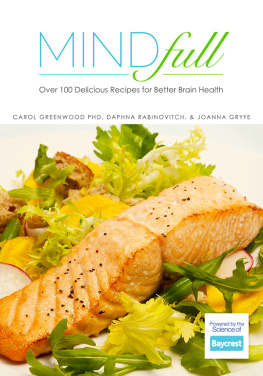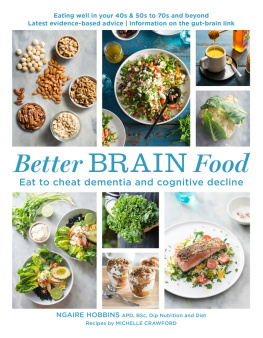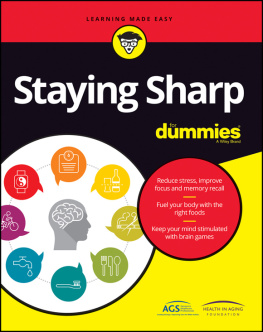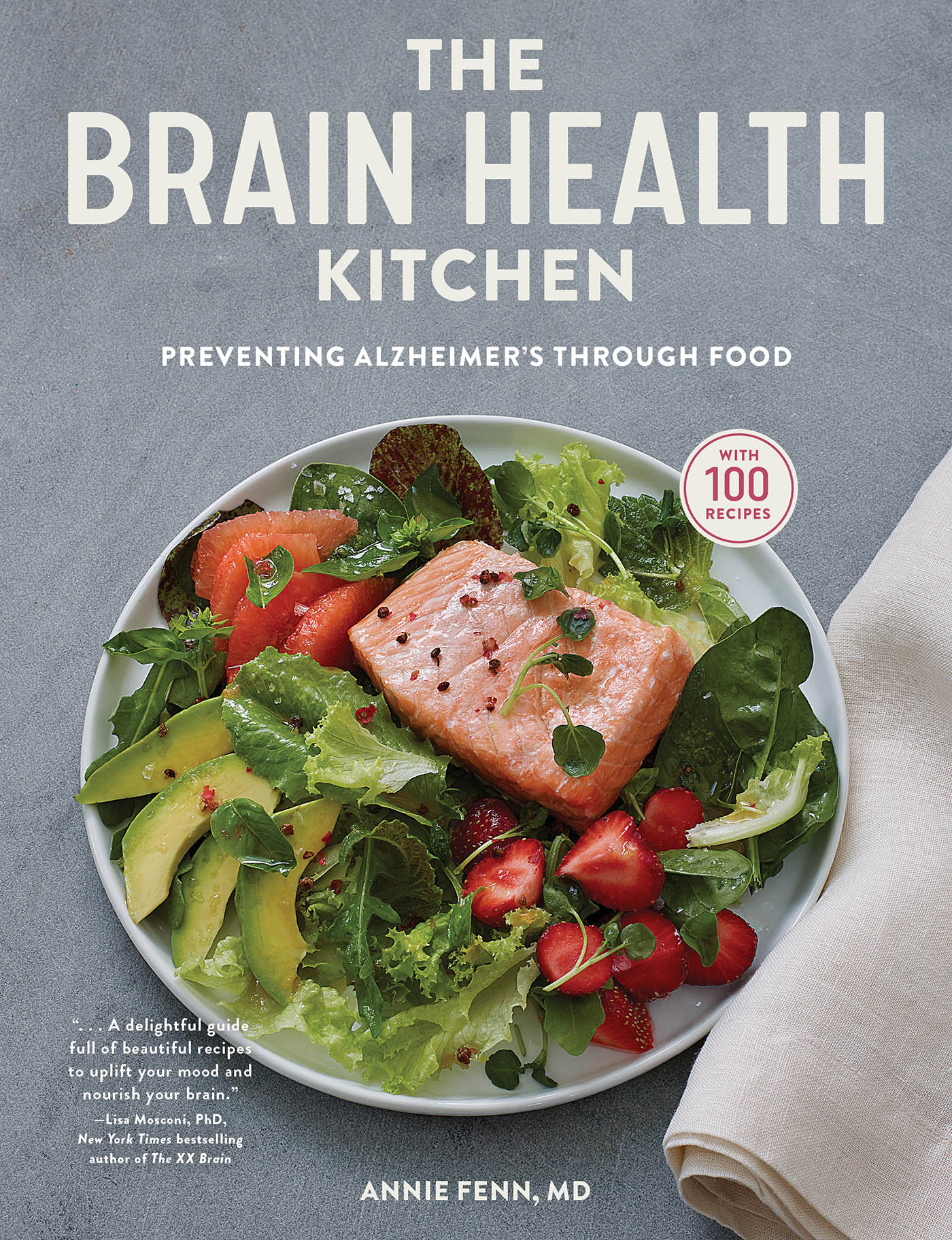
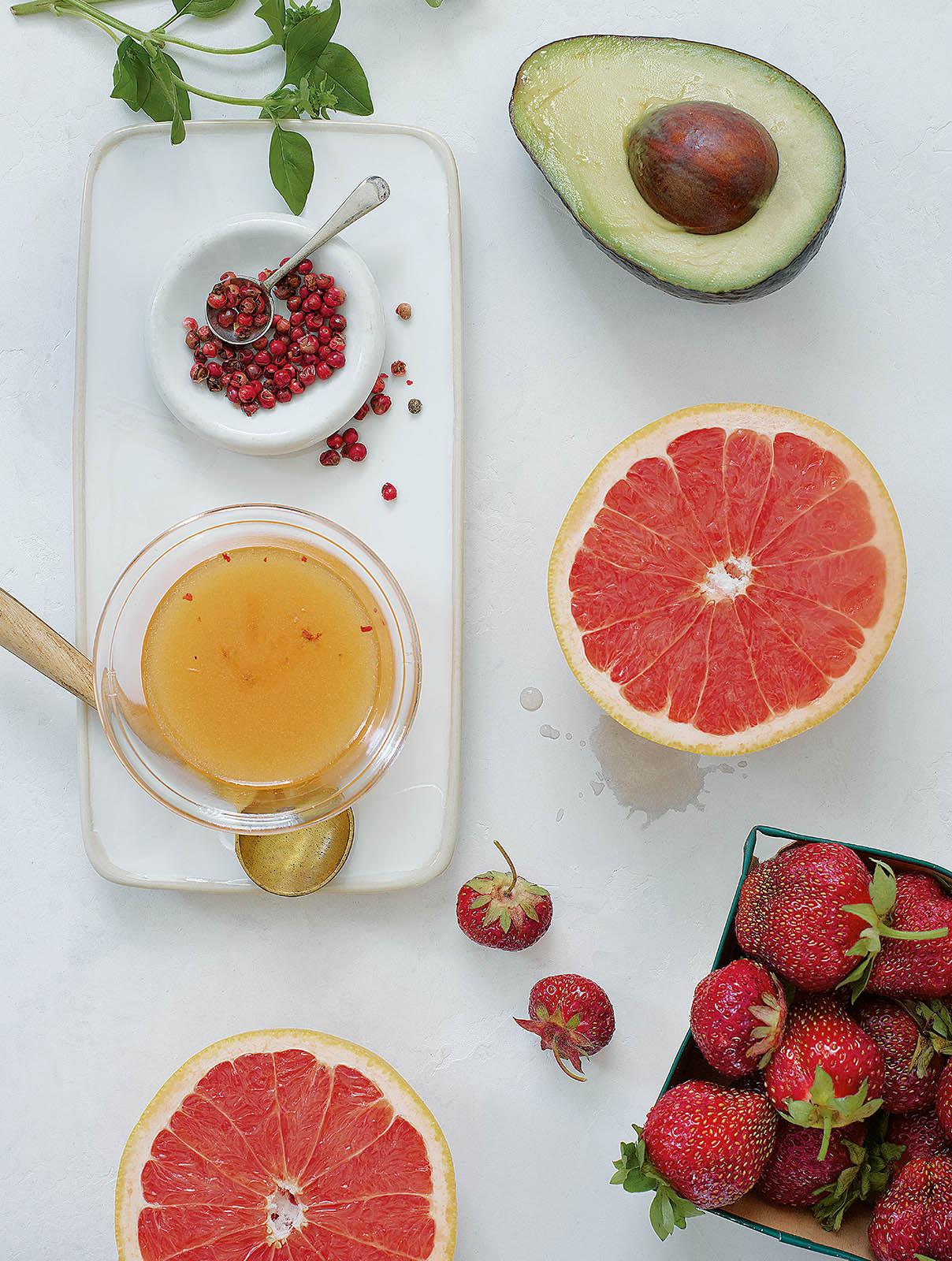
The Brain Health KITCHEN
Preventing Alzheimers Through Food with 100 recipes
ANNIE FENN, MD

To my sons, Jack and Nick:
May your brains thrive.

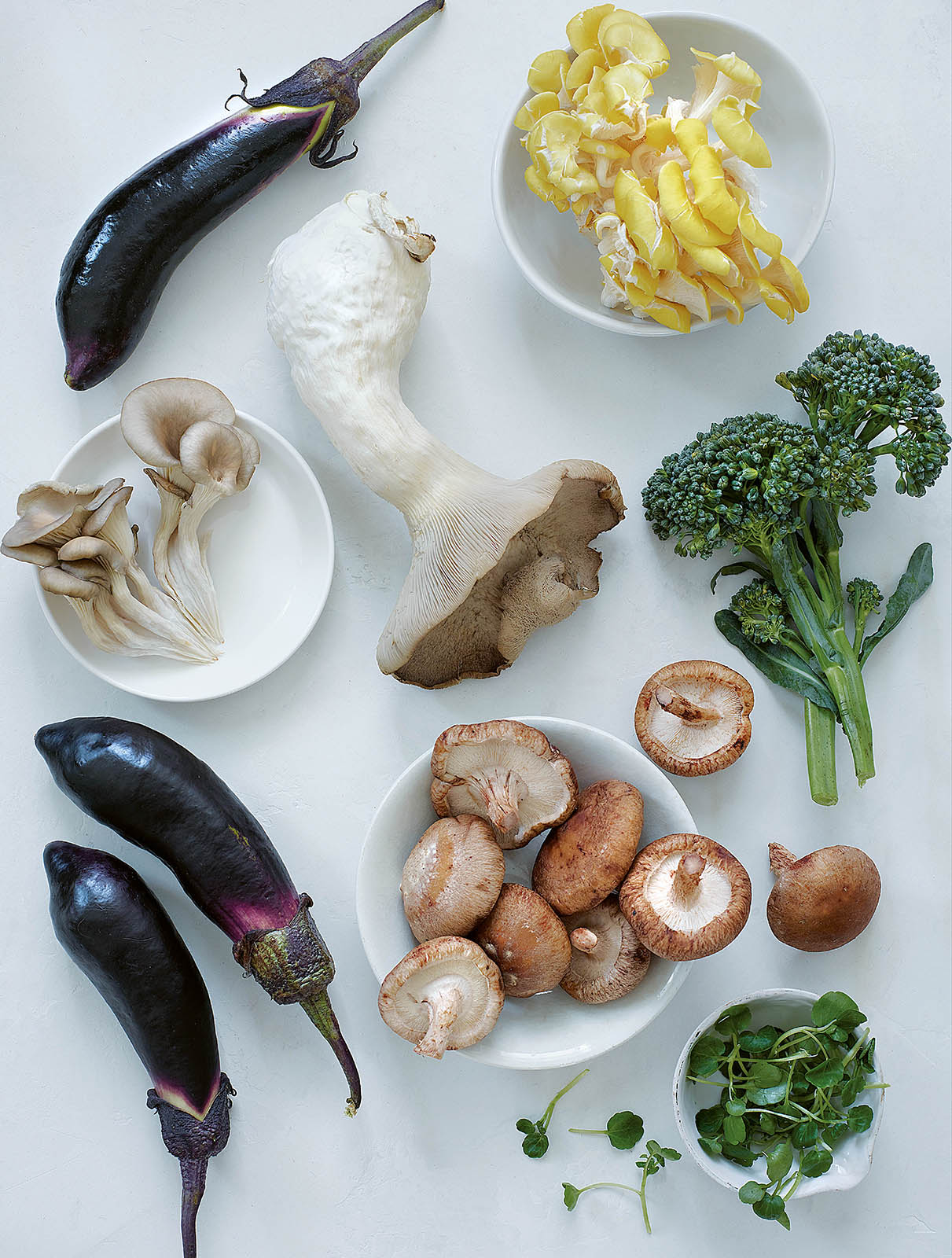
Contents
Preface
Hi, Im Annie: a physician who has always loved food. I didnt choose to become a culinary educator and voice for Alzheimers prevention. Instead, you could say that Alzheimers chose me. First, I saw the earliest signs of cognitive decline in my patients, starting in their perimenopausal years. I saw it in my communityin my colleagues, neighbors, book club members, and parents of friends. Then my mother was diagnosed with mild cognitive impairment (MCI)which turned out to be an early stage of Alzheimersin 2015. This devastating development caused me to have an epiphany: all that I had done in my life up to that pointas a physician specializing in menopause, then as a healthy-cooking instructorgave me a unique set of tools to help others combat this epidemic. Thats why Ive made it my mission to help you take care of your brain while still eating delicious food.
I wrote this book for all of you, whether youve been touched by Alzheimers or not. As you will see, food choices sit at the core of the Alzheimers epidemic, but food is also at the heart of the solution. If you are reading and cooking from this book with your sharp and dementia-free brain, I applaud you for being proactive about your brain health. The earlier you begin eating with brain health in mind, the better. In doing so, you will cultivate a brain that is resilient to age-related cognitive decline from all causes, especially Alzheimers.
If you are experiencing mild cognitive decline, this book will guide you toward action to slow down the aging of your brain. Or if you are witnessing the earliest signs of decline in someone you love, this book will help you help them. Perhaps you have a genetic predisposition to Alzheimers or another type of dementia. If so, adopting a brain-healthy eating pattern will turn down the volume of your gene variants, lessening their impact on the brains destiny. Whatever your situation, think of brain-healthy food as your greatest tool to keep thriving through all the seasons of your life.
If you or a loved one has been diagnosed with Alzheimers (beyond MCI), however, youve entered a different territory of care. Physicians and researchers have not yet discovered how to reverse the disease. Still, a brain-healthy diet is important to support brain function and overall health to reduce symptoms and slow progression. And if you are an Alzheimers caregiver, you may be at increased risk. I urge you to take extra-special care of your brain by following the guidelines in this book.
The good news is, getting older doesnt necessarily mean you will also experience cognitive decline. Theres a myth that dementia is a normal part of aging. It most definitely is not! In the next few decades, however, you will likely see more family and friends diagnosed with Alzheimers or another type of dementia. Thats because the largest population surge in history (hello, baby boomers!) will be entering age groups at high risk for these neurodegenerative diseases. This is happening in my community in Jackson, Wyoming, andunless you live in a the numbers show that its happening in your community, too.

Introduction
In 2022, more than one in nine people age sixty-five and older have Alzheimers. One in two over the age of eighty-five has Alzheimers. Thats more than 6.5 million people with Alzheimers just in the United States, and an estimated fifty million worldwide. With each passing year, the numbers go up.
Lifetime risk is another way to look at estimating how likely you are to get Alzheimers. This is the probability that someone of a given age will develop the disease during their remaining lifespan. If you are a forty-five-year-old man, for example, your lifetime risk for Alzheimers is around 1 in 10. If you are a woman, its closer to 1 in 5. (Yes, women are at greater risk for Alzheimers than men; I go into some of the .)
Unless something is done to prevent, slow, or cure Alzheimers, by 2060 the number of people age 65 and older with this harrowing disease is projected to reach 13.8 million. Its a fate no one would wish on the people they love, but this is the state of the epidemic.
The Power of a Brain-Healthy Dietary Pattern
But theres good news, too. Lifestyle choicesespecially what you choose to eathave a powerful impact on reducing Alzheimers risk. A 2019 article published in the Journal of the American Medical Association found that 60 percent of all Alzheimers cases could be prevented with dietary and lifestyle behaviors. The Lancet Commissions 2020 update on dementia prevention, intervention, and care identified twelve risk factors for dementia that, if modified, would reduce 40 percent of all cases worldwide. In 2021, a study of more than three hundred thousand dementia-free men and women identified six lifestyle behaviors that reduced age-related cognitive decline by as much as 50 percent later in life. All of these studies found the number one dementia-reducing behavior is a brain-healthy dietary pattern.
How I wish Id known these numbers and hopeful statistics back when I was practicing medicine or in the decades before my mom was diagnosed with dementia. Back then, the strong link between lifestyle and Alzheimers risk was just being established through solid scientific studies. As it turns out, the evidence was right in front of me. Unlike most doctors, I always asked my patients about their nutrition history, a general tally of what they ate most days. The women who were more likely to stay mentally sharp with age described a lifetime of eating simple, home-cooked mealssalads, vegetables, beans, grains, and seafood were usually on the menu. Dessert was more likely to be a piece of fruit or a square of dark chocolate than a bowl of ice cream. My patients who complained of cognitive symptoms with ageincluding my motherhad embraced processed foods: pastries and sweets, processed meat, fried food, and ready-made meals from a box. The difference between these dietary patterns, we now know, can mean the difference between keeping the brain sharp with age and getting Alzheimers.
Racial and Ethnic Disparities in Alzheimers
Twice as many Black Americans and one and a half times more Latinx Americans have Alzheimers as white Americans. This disparity stems from a complex array of factorslike having more chronic diseases and less access to medical care. Data from the Chicago Health and Aging Project, an ongoing study of the cognitive health of a group of older adults, indicates 19 percent of Black adults and 14 percent of Latinx adults age sixty-five and older have Alzheimers compared to 10 percent of white older adults. And while the incidence of Alzheimers may be declining slightly in college-educated white people, rates are going up for non-white people.
Next page

